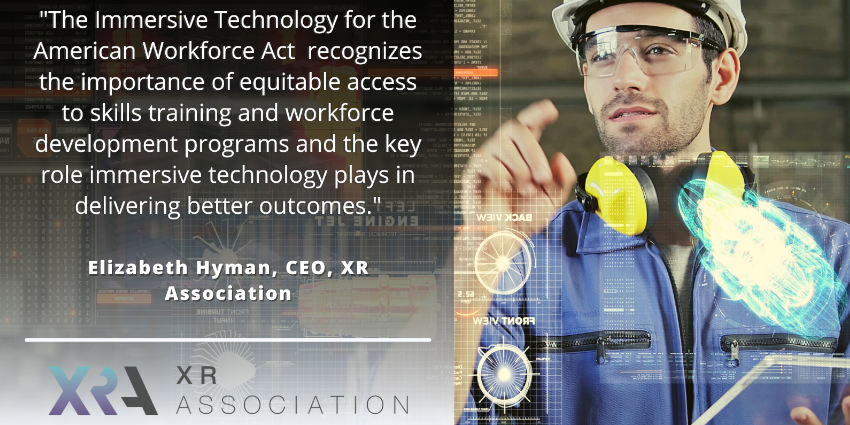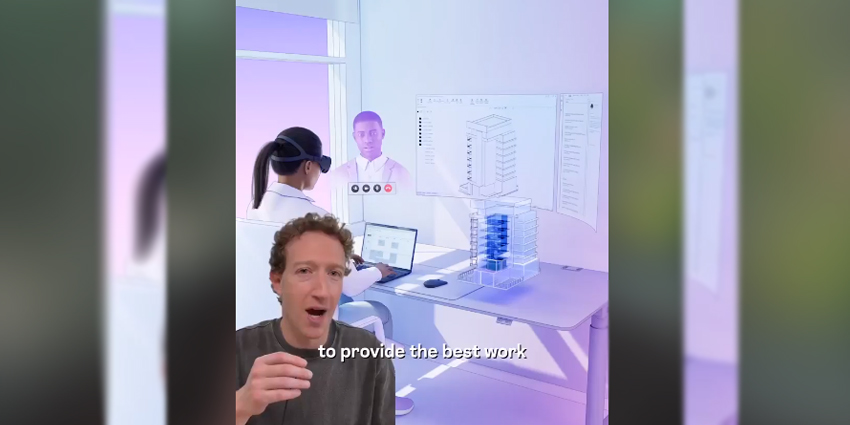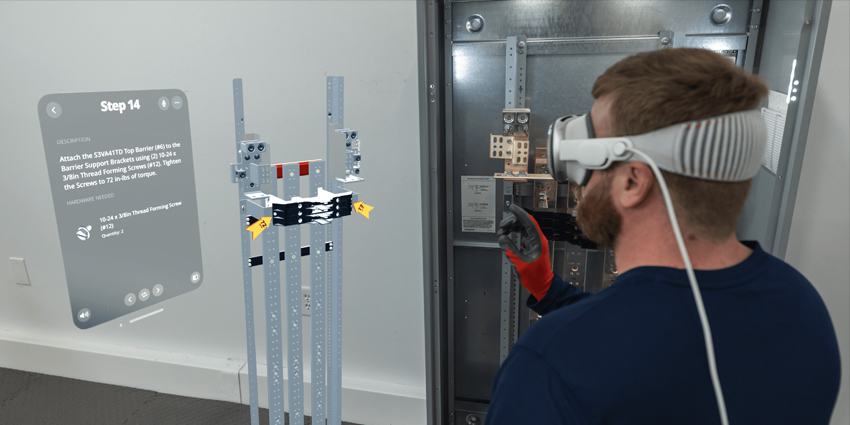The XR Association has announced that it has rallied behind Congress’ latest bill to support workforces leveraging extended reality (XR).
Rep Lisa Blunt Rochester (D-DE-At-Large) authored the Immersive Technology for the American Workforce Act of 2022 (HR 9674). The new legislation aims to offer educational institutions grants and funding to train workforces with XR tools.
This would cover virtual, augmented, and mixed reality (VR/AR/MR) technologies such as headsets, modules, and simulators. The XRA has worked closely with Rep Rochester and her staff to draft the bill. Both hope to support the United States workforce via community colleges and technical centres with high-tech immersive services.
Elizabeth Hyman, Chief Executive, XRA, said emerging technologies such as XR could help reach people “where they are” and “expand access to cutting-edge technology and training resources.”
She added,
“[The bill] recognizes the importance of equitable access to skills training and workforce development programs and the key role immersive technology plays in delivering better outcomes”
Joan O’Hara, Senior Vice President of Public Policy, XRA added,
“We’re excited to be able to work with Rep. Blunt Rochester, a member of Congress who cares deeply about ensuring underserved populations are able to tap into next-generation technology and skills training”
US Legislative Achievements in XR
The announcement on the Immersive Technology for the American Workforce Act of 2022 comes after several milestones from the US Congress. Bipartisan collaboration has led to several bills passing Washington’s legislative branch.
In October last year, US lawmakers passed H Res 1399, recognising November as National XR Month. The bill commemorates efforts from the US government, firms, and experts to build an immersive ecosystem for workforces.
Congressman Darrel Issa (CA-50), Rep Suzan DelBene (WA-01), Rep Ted Lieu (CA-33), and Rep Yvette D Clarke (NY-09) drafted and submitted the resolution.
XRA’s CEO Liz Hyman recently participated in a panel discussion on #XR and the workforce hosted by the Congressional Future of Work Caucus. Thank you to Co-chairs @RepLBR (DE-At Large) and @RepGarbarino (NY-02) for inviting us to join!
Learn more: https://t.co/olciZJ9Mgx
— XR Association (@XRAssociation) April 28, 2023
Following the approval, the XRA hosted its first-ever National XR Month event to celebrate the achievement. The organisation has continuously advocated for including immersive and emerging technologies across the United States. According to Hyman, doing so would create a “special opportunity” for the immersive sector.
She said at the time: “It’s time for Congress to raise awareness of XR because of its capacity to impact and improve all sectors of our society.”
Additionally, it expects XR to fuel 23 million jobs by 2030, contributing $450 billion USD to the global economy.
The Immersive Workforce and the Global Labour Shortage
Work to include XR technologies in the Creating Helpful Incentives to Produce Semiconductors (CHIPS) for America Act [HR 4346] led to the bill’s passing last year. Industry professionals lauded the Act as a victory for XR technologies as it includes part of $250 billion USD for research and development (R&D).
US President Joe Biden later signed the bipartisan document into effect, signalling government backing of the US immersive industry.
To date, the US faces a shortage of skilled labour, triggering organisations to determine the best solution for tackling the crisis. The XRA partnered with the Martec Group to release its second annual report, with its latest report analysing challenges across human resources.
The COVID-19 pandemic triggered massive workforce turnovers since it surfaced in 2019, disrupting hiring and supply chain processes globally.







